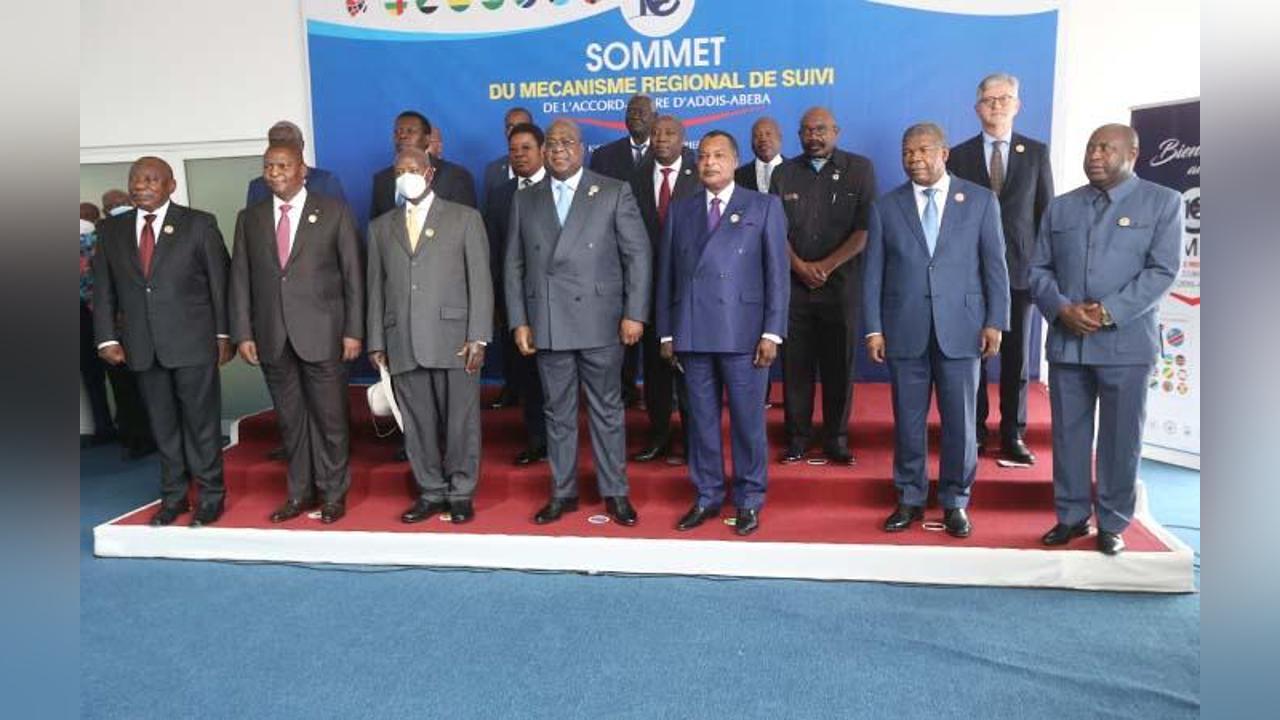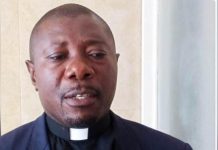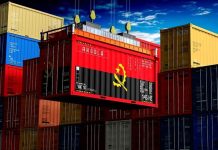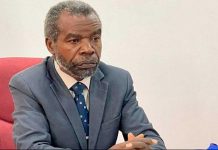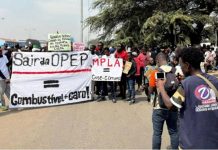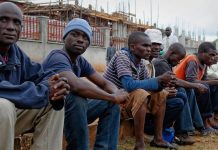Africa-Press – Angola. A new Extraordinary Summit on the Security Situation in the Great Lakes Region will take place this Saturday, 3rd, in the Angolan capital, Luanda, focusing on the latest developments in Sudan and in the Democratic Republic of Congo (DRC).
Among other issues, the meeting could discuss the sending to the DRC of a military force from the Southern African Development Community (SADC), to join the Regional Force of the Community of East African States (EACRF), according to the Congolese Presidency.
Preparations for the Conference of Heads of State and Government were concluded at a meeting that brought together, this week, also in Luanda, the Angolan Minister of Foreign Affairs, Téte António, and ambassadors from some countries in the region accredited in the Angolan capital.
In addition to the DRC and Sudan, countries such as Zambia, Congo, Rwanda, Kenya, Uganda and Tanzania were represented at the meeting, which preceded another between Téte António and the special envoy of the UN secretary general for the Great Lakes, Huang Xia.
This Saturday’s summit will bring together Heads of State and Government of the International Conference on the Great Lakes Region (ICRGL), the Economic Community of Central African States (CEEAC) and the Community of East African States (EAC).
Representatives of the African Union (AU) Commission and the United Nations Secretariat are also expected at the meeting, initially scheduled for last May 15, before being postponed “sine die”.
The aim is to take stock of the diplomatic efforts made so far to put an end to the ongoing conflicts in Sudan and eastern DRC, which are causing serious humanitarian crises in the two countries of the Great Lakes.
In addition to a high number of fatalities, more than a million people were displaced by the two main conflicts on the African continent yesterday, with thousands of refugees in neighboring countries.
Slight progress in the DRC
A recently obtained ceasefire, under Angolan mediation, remains in force in eastern DRC, despite fears of a potential derailment fueled by allegations from Kinshasa of alleged preparations by M23 rebels to resume hostilities.
The ceasefire is being observed based on the Luanda Peace Plan and the Nairobi Process, which allowed the withdrawal of the M23 from previously occupied positions, with a view to its cantonment under the supervision of the EACRF.
Made up of military contingents from Kenya, Uganda, Burundi and South Sudan, the EACRF has been stationed in eastern DRC since the end of 2022, with an initial mandate of six months, which expired last March, before an enlargement. additional three months.
Last May, the EAC and SADC decided to unite in the permanent pursuit of peace in the DRC, with SADC sending another regional force to join the EACRF.
At the Luanda Summit, African regional leaders are expected to confirm the areas of work of the new SADC mission and define the modalities of the intended cooperation and coordination with the EACRF, led by Kenya.
EACRF is mandated to work in collaboration with the UN Mission in the DRC (Monusco), the Congolese Armed Forces (FARDC) and the Ad hoc Verification Mechanism, coordinated by Angola, to persuade all armed groups to lay down their arms .
The Congolese Government has so far been under pressure to authorize the extension of the EACRF’s mandate, after expressing its dissatisfaction with the performance of this mission, which it accuses of being “too complacent” with the M23.
In addition to open criticisms made by President Félix Antoine Tshisekedi against the “harmless” character of the EACRF, several protest marches were organized to demand a more aggressive stance against the M23.
On the eve of the Luanda Summit, the EAC approved the long-awaited extension, until September 2023, of the mandate of its military mission in the east of the DRC, which, however, needs to be ratified by the Congolese Government.
The EAC took this decision during its 21st extraordinary summit held in the Burundian economic capital, Bujumbura, under the chairmanship of the host head of state, Evariste Ndayishimiye.
Setbacks in Sudan
Since the beginning of armed clashes in Sudan on 15 April, several ceasefire initiatives have failed, with systematic violations on both sides of the conflict.
The most recent ceasefire was agreed on May 20, to allow the distribution, for seven days, of humanitarian aid to civilians trapped in the country’s capital, Khartoum, with damaged water and electricity infrastructures.
Amid mutual accusations of violation of the ceasefire, the Sudanese Armed Forces (FAS) suspended its participation in the peace talks in Jeddah, mediated by Saudi Arabia and the United States.
The military commander and current President of Sudan, General Abdel Fattah al-Burhan, blamed the failure on “non-compliance” by the Rapid Support Forces (RSF) militia of his rival Mohammed Hamdan Dagalo “Hemetti.
The agreement in Jeddan, Saudi Arabia’s economic capital, also provided for the withdrawal of RSF troops that occupied civilian residential homes in Khartoum.
In a brief statement, the FAS, led by Burhan, explain that the talks were suspended due to the “non-compliance”, by Hemetti’s rebel militia, with the terms of the signed agreement and its “continuous violation of the ceasefire”.
The withdrawal of the FAS from the negotiations came shortly after the belligerent parties announced the extension of the ceasefire for another five days, to give humanitarian actors more time to fulfill their mission.
In its reaction, the RSF indicated, for its part, in a statement that the Sudanese Army continued to violate the ceasefire with “daily air strikes”.
For More News And Analysis About Angola Follow Africa-Press

